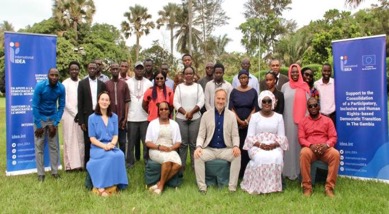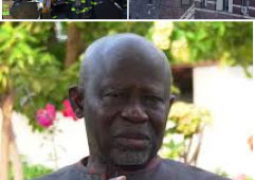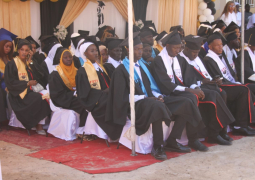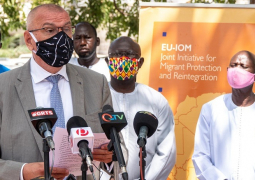
The training held at Kairaba Beach Hotel was aimed at equipping media editors and managers with the necessary tools and knowledge to effectively prevent and address sexual harassment.
In his opening remarks, Muhammed S. Bah, president of the Gambia Press Union (GPU), said since the establishment of the GPU, it has been steadfast in its commitment to safeguarding the welfare of journalists and media professionals across the nation.
He said with over 600 members, the Union has continuously strived to enhance the capacities of its members, advocated for press freedom and fostered the development of a robust and reliable media sector in The Gambia.
Bah said that a comprehensive report commissioned by the GPU in August 2020 shed light on the prevalence of sexual harassment in Gambian media agencies, emphasising the urgent need for action.
He added that the GPU has developed a Sexual Harassment Policy for the media in The Gambia. According to him, the policy serves as a vital framework for media organisations to combat sexual harassment and foster a culture of respect and dignity in workplaces.
Jainaba Faye, head of country office for International IDEA said GPU’s Sexual Harassment Policy investigated the prevalence of sexual harassment in the country’s media industry, noting that 109 respondents were drawn from 24 media organisations and freelance journalists.
She stated that the findings were truly heart breaking, with 22% of the respondents having heard rumors of sexual harassment in workplaces.
She said 40% of this have heard it more than twice and 23.9% are aware of someone being sexually harassed and 13.7% have had personal experience of sexual harassment.
“As media manager and editors, you have a profound responsibility to inform, educate, empower and provide a safe space for your colleagues. You must also recognise the significant responsibility you bear in preventing sexual harassment as it does not only undermine the integrity of your profession but also perpetuates a toxic culture that damages individuals, organisations and society as a whole,” she said.
She urged them to create workplaces that foster a culture of respect and inclusivity, challenging harmful stereotypes, confronting power imbalances, and promoting diversity at all levels of the media industry.
Raphael Brigandi, Charge D’Affaires of the European Union, said the EU in its commitment to supporting gender equality and human rights, recognises the critical role of the media in shaping public opinion and fostering a democratic society.
He noted that it is imperative that those at the forefront of the sector provide working conditions that respect the dignity and integrity of their workers.
“In our collective endeavor to eliminate such unacceptable behaviours, we commend the National Human Rights Commission (NHRC) for their comprehensive sexual harassment policy, which serves as a critical framework for promoting safe and respectful workplaces across various sectors,” he concluded.
Read Other Articles In National News

Rural Child boosts education with school supplies for rural students
Nov 7, 2025, 11:33 AM




